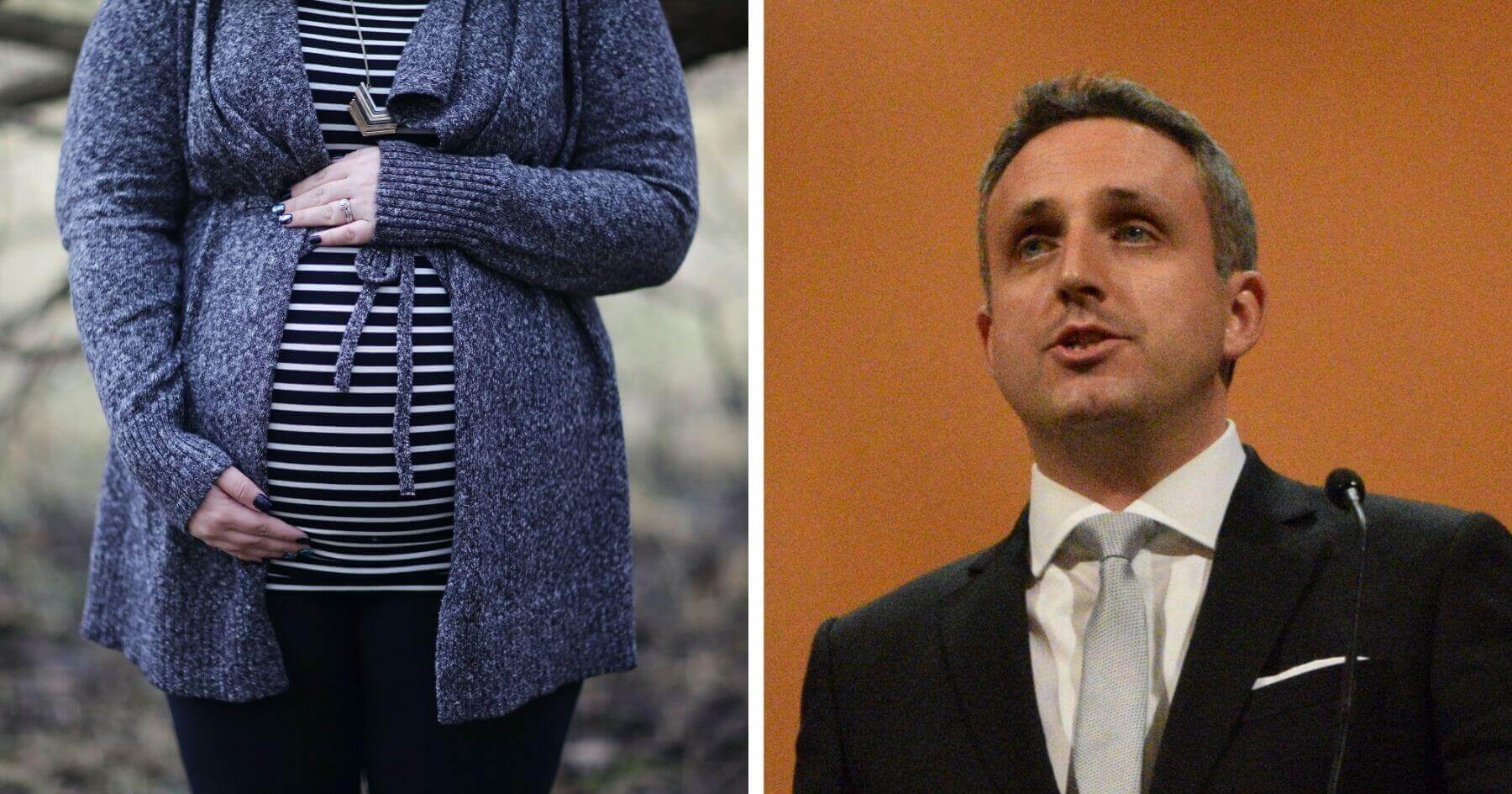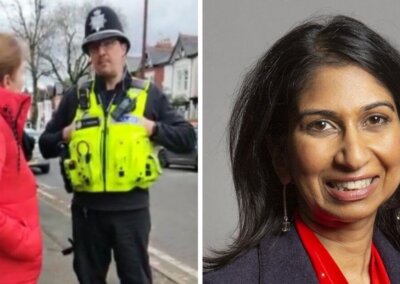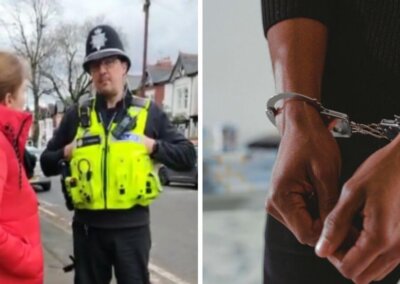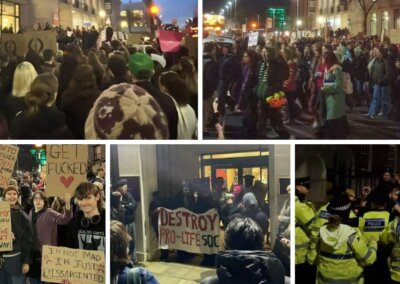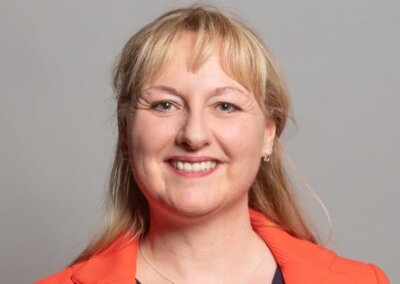Councillors in Edinburgh have decided to back the campaign to legally enforce censorship zones around an abortion centre in the capital, and calls for national enforcement have received increased support from a number of politicians in Scotland.
The ‘#BackOffScotland’ campaign, started by a group of Edinburgh University students, calls for legal powers to remove any pro-life vigils within 150m of a hospital or clinic that provides abortions.
SNP candidate Sarah Masson has pledged her support for the censorship zones saying:
“These health centres, such as Chambers Sexual Health Clinic in Edinburgh, offer a range of services and women should be free to access them in peace, without harassment or intimidation from others on arrival”.
“I was incredibly glad to see Edinburgh Council back the calls from the campaigners. It is a significant step forward for the campaign”.
“However, I agree with Back Off Scotland that this issue is better tackled nationally”.
She has subsequently urged the Scottish Government to consider introducing these measures nationally.
Other politicians, such as Alex Cole-Hamilton MSP, have also backed the move. He said: “I’m hoping when they finally get around the table, [the Scottish Government] grant permission to all 32 councils to have authority over these laws”.
Censorship zones in England
Censorship zones have long been a matter of contention throughout England and there have been a number of attempts in recent years to introduce a law to prevent the offering of help outside abortion clinics.
Most recently, a bill to introduce censorship zones, which was brought forward by Rupa Huq MP, failed to pass through the Commons at its Second Reading in September.
Censorship zones would criminalise the offering of practical and emotional support to women entering abortion clinics across England and Wales, bringing a possible prison sentence of up to two years for those who offer support to women within 150 metres of abortion clinics.
In 2017, former Home Secretary Amber Rudd launched a review into the scale and nature of pro-life vigils outside abortion clinics to establish if the Government would recommend the introduction of censorship zones. In the investigation, continued by the succeeding Home Secretary Sajid Javid, there were over 2,500 responses to a call for evidence, including from abortion service providers, abortion service clients, those engaging in anti-abortion demonstrations, police forces and local authorities.
In 2018, Sajid Javid announced that the Home Office could not find adequate reason to introduce censorship zones, stating: “[…] introducing national buffer zones would not be a proportionate response, considering the experiences of the majority of hospitals and clinics, and considering that the majority of activities are more passive in nature. In making my decision, I am also aware that legislation already exists to restrict protest activities that cause harm to others”.
Opposition to censorship zones
Opposition to censorship zones extends beyond pro-life advocates to unite a large part of society, which may not agree with the pro-life position on abortion but opposes censorship zones as a threat to freedom of speech.
Despite supporting abortion, a number of prominent human rights groups and campaigners have spoken out against the introduction of censorship zones. This includes Peter Tatchell, the Manifesto Club, Big Brother Watch, Index on Censorship and the Freedom Association.
Right To Life UK spokesperson, Catherine Robinson, said: “As the former Home Secretary said, legislation to prevent harassment outside abortion clinics already exists. If this takes place in particular cases, the individual(s) responsible can already be prosecuted under existing legislation”.
“Harassment though, should never happen. The rhetoric surrounding the introduction of censorship zones is very far from the reality of what actually happens. The Be Here For Me website highlights just a few of the many stories of women who have been helped by people outside abortion clinics, and the stories of women who could miss out on such support in the future”.
“The introduction of censorship zones is not only a fundamental attack on the freedom of expression, an attack recognised by many supporters of abortion, but more fundamentally, is an attempt to prevent people from providing help to others in their time of need”.


